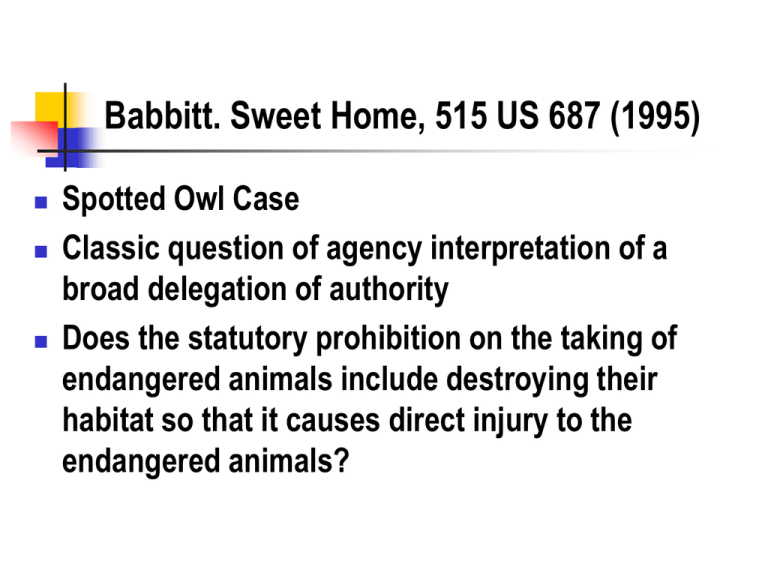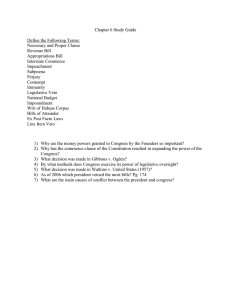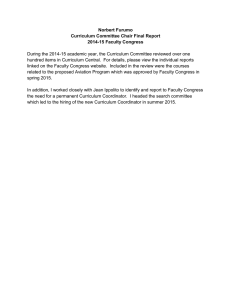Babbitt. Sweet Home, 515 US 687 (1995)
advertisement

Babbitt. Sweet Home, 515 US 687 (1995) Spotted Owl Case Classic question of agency interpretation of a broad delegation of authority Does the statutory prohibition on the taking of endangered animals include destroying their habitat so that it causes direct injury to the endangered animals? Majority Opinion Focuses on the broad powers given the secretary of the interior Looks at the intent of congress to protect the animals Finds that the secretary's interpretation of protecting the animals includes protecting the environment is reasonable Dissent - Scalia Scalia, the hunter, reads the statute literally: Taking means shooting them, putting them in the pot, eating them. At least, taking means directly takings actions against the animals, not the environment Makes the economic argument that this was level of disruption was not intended by congress Says congress can by the land if it wants to protect the habitat What is the Balancing by Congress? What was the endangered species act intended to protect? What does it usually protect? Would Congress have passed a law to protect these? What about environment? Why hasn't congress "fixed" the act to overturn this ruling? MCI Telecommunications Corp. v. American Tel. & Tel. Co., 512 U.S. 218 (1994) FCC case Agency modified tariff system (rate approval system) to exclude smaller carriers Majority said this failed Chevron I The act exceeded the agency's statutory powers The dissent saw this as just another interpretation problem Valid under the power to improve competition Public Citizen v. Young, 831 F.2d 1108, (D.C.Cir. 1987) The Delaney Clause Can the FDA create a de minimis test to all the use of food additives that do not satisfy the Delaney Clause? Delaney Clause What does the legislative history show about the congressional intent for the Delaney Clause? Why would Congress adopt this standard? Is it scientifically absurd? Peanut butter Most plants Given this intent, what must the court rule? Must these dyes be immediately banned?





